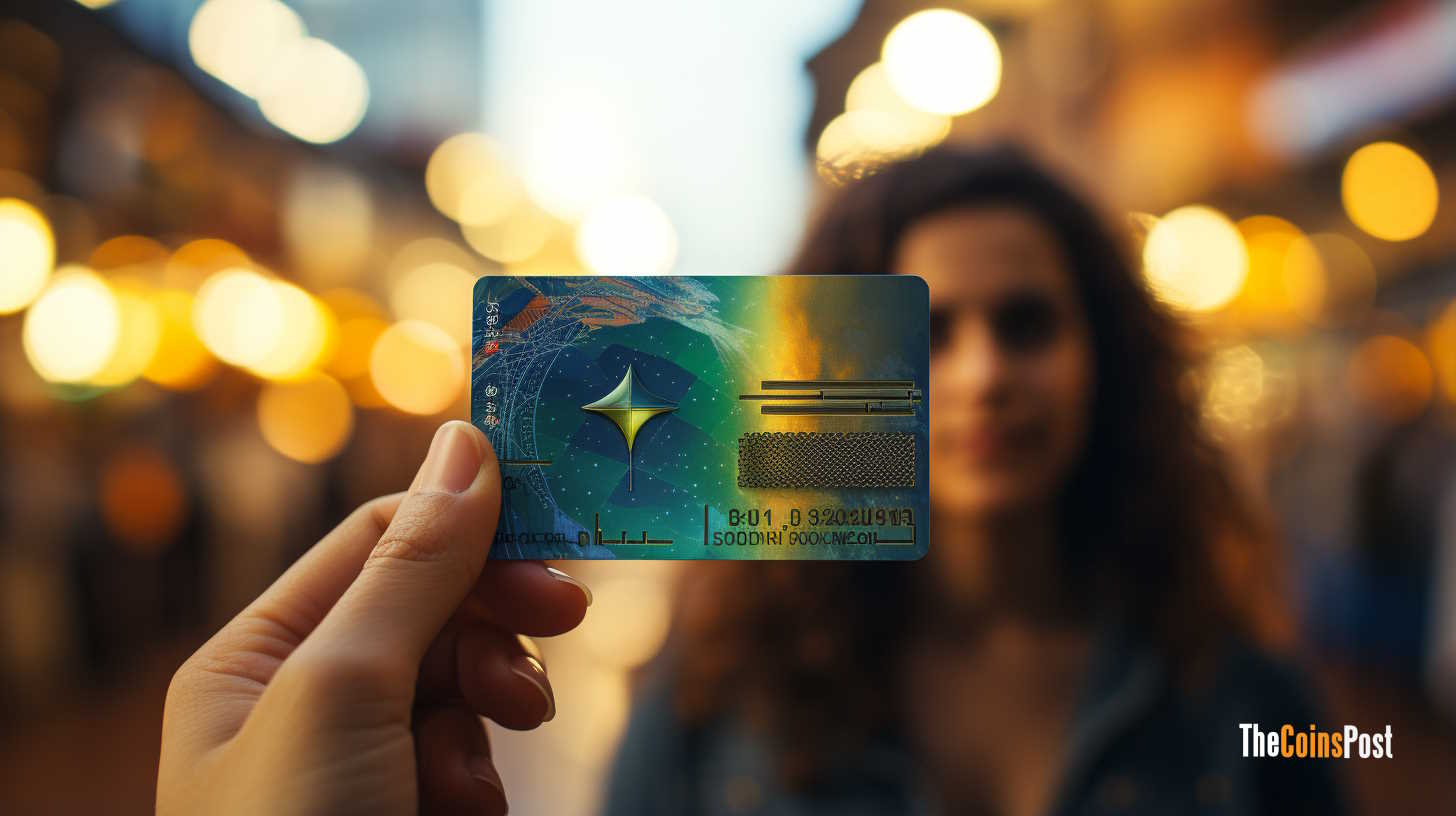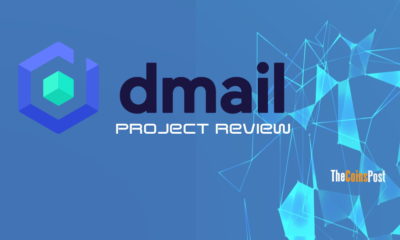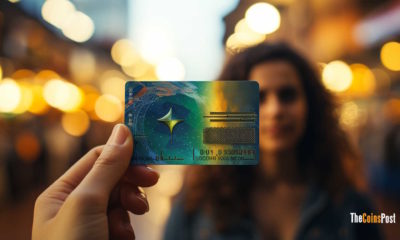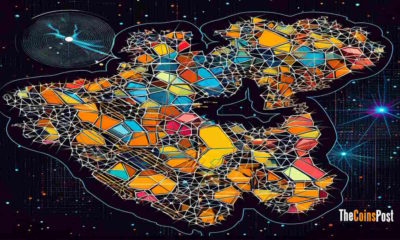Blockchain
MoneyGram and Stellar Blockchain: Revolutionizing Global Payments

In a recently published case study by the Stellar Foundation, the groundbreaking collaboration between MoneyGram International and the Stellar blockchain has been highlighted. This case study sheds light on the innovative solutions and transformative potential of the partnership, as MoneyGram Access brings cash-to-crypto transactions to a global scale. Let’s explore how this partnership is revolutionizing the world of global payments and financial inclusion.
Contents
The Challenge
Transforming Cross-Border Payments MoneyGram’s core objective has always been to provide efficient cross-border payment solutions to a diverse client base worldwide. As the fintech industry progressed, the company recognized the transformative potential of blockchain technology. The challenge lay in combining MoneyGram’s global reach with the power of blockchain to create a comprehensive and accessible financial ecosystem.
The Solution
MoneyGram Access and Stellar Blockchain MoneyGram International embarked on a journey to integrate Stellar blockchain into its services, leading to the development of MoneyGram Access. By leveraging the Stellar blockchain, MoneyGram Access allows users to seamlessly convert physical cash into USDC, a stablecoin backed by cash and U.S. treasuries. This feature empowers users to send funds globally, hold assets securely, and protect themselves against market volatility. Additionally, users can withdraw their USDC and receive physical cash in their local currency at any participating MoneyGram location.
Connecting On and Off-Ramps to Stellar-Powered Wallets & Applications
By adopting the Stellar Development Foundation’s SEP-24 protocol, MoneyGram gained direct access to the Stellar network and its extensive ecosystem. This integration opened doors to new user bases for MoneyGram, while wallets and applications supporting Stellar were able to tap into MoneyGram’s vast retail network. Consequently, users gained the ability to deposit or withdraw cash from their wallets via USDC on Stellar, all without the need for a traditional bank account.
Solving the Last Mile Problem without a Bank Account
With MoneyGram Access, individuals now have the option to perform cash-to-crypto transactions at participating MoneyGram locations. Users can “cash-in” by converting physical cash into USDC at their chosen MoneyGram location, or “cash-out” by withdrawing USDC and receiving physical cash in their preferred local currency. This innovative solution eliminates the barriers faced by the unbanked and underbanked populations, ensuring equitable access to digital financial services.
USDC on Stellar for Quick, Easy Settlement
Recognizing the concerns of the unbanked and underbanked regarding the volatility of cryptocurrencies, MoneyGram strategically chose to leverage USDC on the Stellar blockchain. By combining a thoroughly-audited fiat-backed stablecoin with Stellar’s optimized network, MoneyGram provides secure, quick, and affordable payment options. Transaction fees are negligible, enabling swift and cost-effective value transfers.
Impressive Results and Future Potential
MoneyGram Access has made a significant impact since its launch. With support for cash-out off-ramps in over 180 countries and a network of 300,000 locations, the solution has demonstrated its scalability and widespread adoption. Additionally, MoneyGram has successfully integrated MoneyGram Access with four wallets, expanding its reach and user base.
This cash-to-crypto use case is just the beginning of a transformative era in global finance. The versatility of MoneyGram Access holds immense potential for urgent use cases worldwide, such as cash-based aid disbursements powered by Stellar Aid Assist. The partnership between MoneyGram and Stellar has paved the way for greater financial inclusion, granting individuals in cash economies access to a broader range of financial services.
Final Thoughts
Empowering Financial Inclusion through Blockchain MoneyGram’s collaboration with Stellar blockchain has revolutionized global payments and facilitated financial inclusion on an unprecedented scale. MoneyGram Access has bridged the gap between traditional cash-based economies and the rapidly expanding world of digital finance. As blockchain continues to reshape the financial landscape, innovative solutions like cash-to-crypto transactions will empower individuals worldwide and foster a more equitable global financial system.
Blockchain
Fireblocks buys Australian blockchain start-up BlockFold

Fireblocks, the crypto company backed by Sequoia Capital and Coatue Management, has acquired BlockFold, a Melbourne-based start-up that helps financial institutions build blockchain-based systems.
As per Bloomberg , Fireblocks paid about $US10 million ($15.6 million) for BlockFold. While Fireblocks already works with large financial institutions, including Bank of New York Mellon, BNP Paribas and the Tel Aviv Stock Exchange, it has predominantly offered them services around custody technology.
New York-based Fireblocks is one of crypto’s most well-funded start-ups, having raised some $US1.2 billion so far. The company, which employs around 650 people in the US and Israel, was valued at $US8 billion in its latest financing round in January 2022.
The deal comes as large Wall Street firms ramp up efforts to issue and trade traditional financial assets like bonds and private-equity investments over blockchain networks, seeking to simplify processes and cut costs.
Founded in 2021, BlockFold specialises in tokenisation and smart-contract development for clients such as large financial institutions. Fireblocks and BlockFold have already worked together on projects including National Australia Bank’s recent cross-border stablecoin transfer.
Blockchain
Brazil Enhances National Identity Card Security with Blockchain Technology

In a significant stride toward modernization, Brazil is rolling out a novel national identity card system, fortified by the integration of a blockchain network. This innovative approach is set to bolster the security of data sharing between the Federal Revenue Service and civil identification authorities.
The cornerstone of this system is the shared registry known as b-Cadastros, designed to underpin the operations of the revenue service. This comprehensive platform facilitates searches, issuance, and modifications of the new ID cards and tax registration numbers. Notably, the platform’s development was orchestrated by Serpro, Brazil’s state-owned IT services corporation.
Serpro’s President, Alexandre Amorim, emphasized the pivotal role of the b-Cadastros blockchain platform in fortifying the National Identity Card project. “The use of the b-Cadastros blockchain platform is a major differentiator for the security and reliability of the National Identity Card project,” he stated.
The National Civil Identity Card (ICN) represents an upgraded iteration of Brazil’s traditional paper-based ID cards, and the nationwide issuance commenced in July 2022. The overarching goal of this project is to centralize the nation’s civil identification system and harness the ICN database to authenticate individuals accessing online public services.
The modern plastic card boasts an innovative feature: it empowers users to generate a single digital version of their identity document. This advancement enhances security, as it allows for validation through a printed QR code. In adopting blockchain technology for the ID cards, the Brazilian government anticipates streamlining processes and curbing fraud and illegal activities. Presently, individuals can request identification cards in all of Brazil’s 27 states, which presents challenges in terms of data integrity and security.
Serpro’s Amorim elaborated on the significance of blockchain technology in safeguarding personal data and thwarting fraudulent activities, thus delivering a more secure digital experience for Brazilian citizens.
The states of Rio de Janeiro, Goiás, and Paraná are set to pioneer the blockchain-based version of the national revenue service’s shared registry for the issuance of the new ID cards this week. The remaining states are poised to follow suit over the next six weeks, marking a significant step forward in enhancing the security and efficiency of Brazil’s identity verification and taxation systems.
Source: Forbes
Blockchain
Horizen’s $ZEN Holders Take the Helm with the DAO Launch

The Horizen community, get ready to embark on a revolutionary journey in governance as the Horizen DAO steps into the spotlight, as per Horizen’s new announcement.
Horizen, a public, open-source blockchain protocol, boasts a thriving ecosystem composed of developers, miners, node operators, and holders of $ZEN tokens across various blockchain networks. The introduction of the Horizen DAO paves the way for increased community involvement in decision-making and offers a platform for your voices to shape the project’s path.
Discovering the Horizen DAO
DAO, which stands for “Decentralized Autonomous Organization,” has emerged as the gold standard for decentralized governance in the blockchain world and beyond, as per Horizen’s new announcement.
Horizen has always been driven by its community, acknowledging the critical role of a strong social layer in upholding integrity throughout the ecosystem, as stated in Horizen’s new announcement. This ethos is guided by principles such as transparency, accountability, security, community engagement, continuous improvement, and social responsibility. Dive deeper into Horizen’s guiding principles on the Horizen governance page.
Stages of Proposals and Voting
The Horizen DAO takes decentralization of decision-making to new heights, encompassing both technical and non-technical aspects, along with other substantial system enhancements, as outlined in Horizen’s new announcement.
Protocol Improvement Proposals (IPs) are a well-established mechanism for selecting and implementing fresh features and fundamental protocol adjustments in numerous blockchain projects, as per Horizen’s new announcement. In Horizen’s case, these IPs are the cornerstone of the Horizen DAO’s community-driven governance. For Horizen’s primary chain and the EON sidechain, we respectively refer to these as ZenIPs and EONIPs, and they are the lifeblood of our governance process.
Ultimately, it’s the $ZEN token holders who wield the power to steer the future of Horizen, shaping the network’s evolution through active participation in the Horizen DAO, as per Horizen’s new announcement. Any holder of $ZEN can cast their vote on proposed improvements, while those with the requisite amount of $ZEN, either held or delegated, can propose changes to the community. To ensure effective community governance, users will also have the option to delegate their voting authority to individuals they trust as capable stewards of Horizen’s core values.
For a comprehensive understanding of the Horizen DAO, including its proposal phases, voting procedures, Constitution, and more, we invite you to explore the Horizen Governance page. Join us on this exciting journey to help mold the future of Horizen – we’re delighted to have you on board, as announced by Horizen.
-

 Altcoins5 years ago
Altcoins5 years agoProject Review: Pi Network, a New Scam Project in Town
-

 Bitcoin4 years ago
Bitcoin4 years agoBitcoin Worth $1.2M Seized From Arrested Indian Hacker
-

 Altcoins6 years ago
Altcoins6 years agoReview: Play Arcade Games Inside ARK Wallet And Win Some Free Cryptocurrency
-

 Blockchain6 years ago
Blockchain6 years agoA Full Review: Utopia A New Decentralized P2P Blockchain
-

 Bitcoin6 years ago
Bitcoin6 years agoAnother Exit Scam: NovaChain Shuts Down
-

 Exchanges5 years ago
Exchanges5 years agoCrex24 Will Require KYC Verification
-

 Bitcoin6 years ago
Bitcoin6 years agoJohn McAfee Has Gone Missing
-

 Blockchain5 years ago
Blockchain5 years agoProject Review: Dmail Decentralized Blockchain Email




















